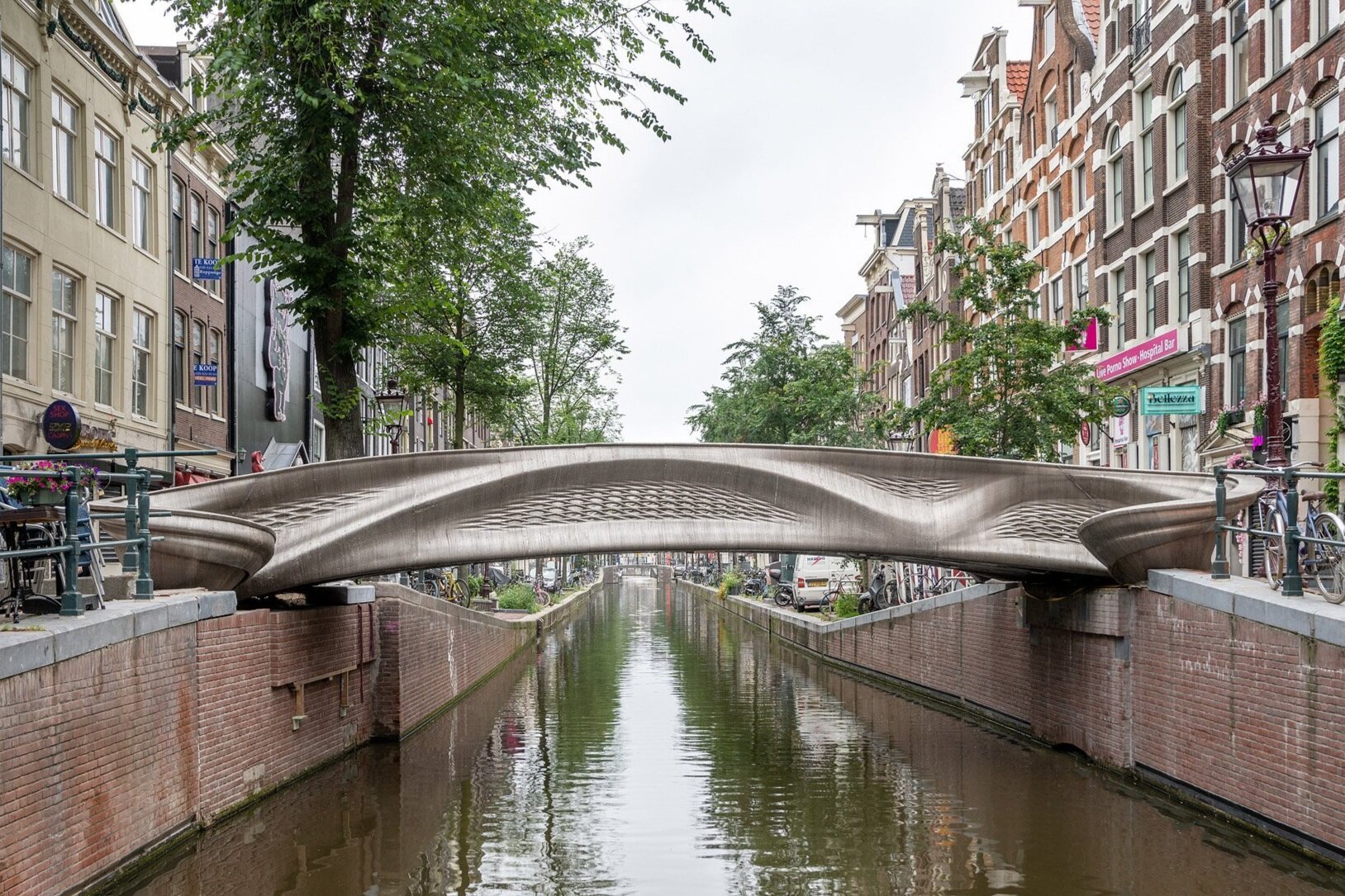What we’ve read, written and seen
Newsletter week 30
Hydrogen Olympics
In 2017, Japan was one of the first countries to adopt a national hydrogen strategy. The Olympic Village uses hydrogen to provide heat, hot water and light in dormitories, cafeterias and training facilities for 11,000 athletes and powered the flames of the Cauldrons in Tokyo.
Read more here
Amsterdam’s 3D Printed Bridge
The futuristic bridge designed by Joris Laarman and built by Dutch robotics company MX3D is steel printed by six-axis robotic arms equipped with welding gear. The Alan Turing Institute fitted the structure with a network of sensors that collects data and builds a digital twin to keep track of its performance and health.
See more here
Airship Orchestra
Melbourne-based art and technology company ENESS created Airship Orchestra, an interactive installation composed of 16 inflatable characters. The characters change colour, react to passersby, and sing a generative soundscape.
See more here
Compostable Textiles
Polyester and other petroleum-based synthetics can take anywhere from 20-200 years to fully decompose. Fabric Mill Huston Textile placed these images on their Instagram page. On the left, you see a pair of stretch jeans where the cotton has fully decomposed, yet all the plastic fibres remain. The wool, on the right, fully decomposes in up to 6 months.
See more here
Mitochondria Lifestyle
We are learning more about our energy and how we react to our environment, stress and light. The Mitochondria Lifestyle includes heat and cold therapy and creating a more conscious relationship with light, not just blue light.
Left, book by Warren L.Cargal
Right, SaunaSpace Luminati Sauna, portable near infrared sauna
Read more here
You can subscribe to our bi-weekly newsletter here
Banner image, spherical Olympic cauldron with hydrogen flame by Nendo







